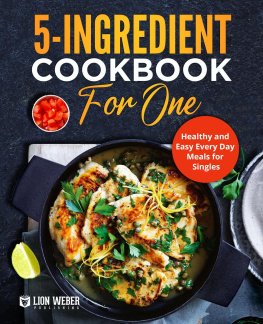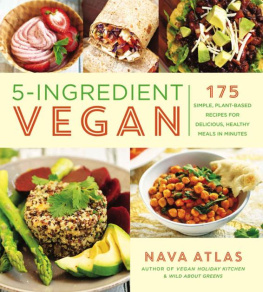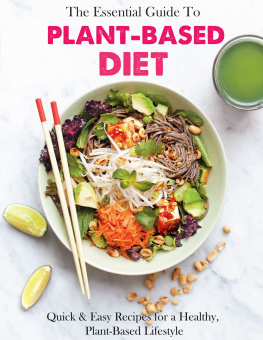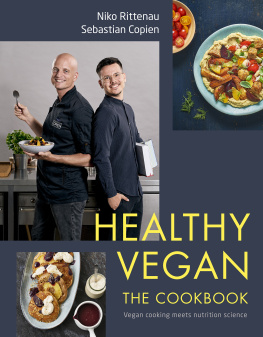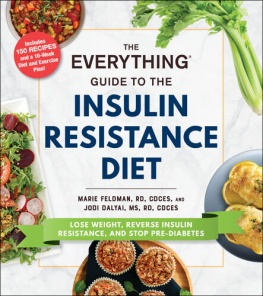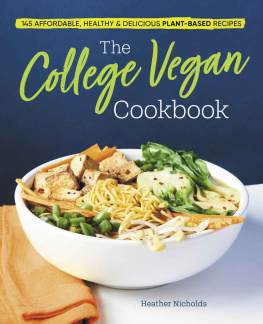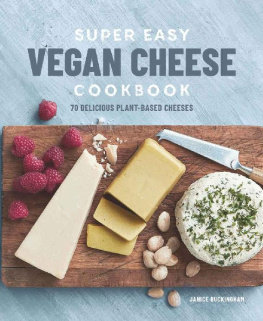


Copyright 2020 by Rockridge Press, Emeryville, California
No part of this publication may be reproduced, stored in a retrieval system, or transmitted in any form or by any means, electronic, mechanical, photocopying, recording, scanning, or otherwise, except as permitted under Sections 107 or 108 of the 1976 United States Copyright Act, without the prior written permission of the Publisher. Requests to the Publisher for permission should be addressed to the Permissions Department, Rockridge Press, 6005 Shellmound Street, Suite 175, Emeryville, CA 94608.
Limit of Liability/Disclaimer of Warranty: The Publisher and the author make no representations or warranties with respect to the accuracy or completeness of the contents of this work and specifically disclaim all warranties, including without limitation warranties of fitness for a particular purpose. No warranty may be created or extended by sales or promotional materials. The advice and strategies contained herein may not be suitable for every situation. This work is sold with the understanding that the Publisher is not engaged in rendering medical, legal, or other professional advice or services. If professional assistance is required, the services of a competent professional person should be sought. Neither the Publisher nor the author shall be liable for damages arising herefrom. The fact that an individual, organization, or website is referred to in this work as a citation and/or potential source of further information does not mean that the author or the Publisher endorses the information the individual, organization, or website may provide or recommendations they/it may make. Further, readers should be aware that websites listed in this work may have changed or disappeared between when this work was written and when it is read.
For general information on our other products and services or to obtain technical support, please contact our Customer Care Department within the United States at (866) 744-2665, or outside the United States at (510) 253-0500.
Rockridge Press publishes its books in a variety of electronic and print formats. Some content that appears in print may not be available in electronic books, and vice versa.
TRADEMARKS: Rockridge Press and the Rockridge Press logo are trademarks or registered trademarks of Callisto Media Inc. and/or its affiliates, in the United States and other countries, and may not be used without written permission. All other trademarks are the property of their respective owners. Rockridge Press is not associated with any product or vendor mentioned in this book.
Interior and Designer: Julie Gueraseva
Art Producer: Sara Feinstein
Editor: Myryah Irby
Photography 2019 Thomas J Story
Food Styling by Karen Shinto
courtesy of Amanda Gallant
ISBN: Print 978-1-64152-988-4 | eBook 978-1-64152-989-1
R0
This book is dedicated to John Montuorimy hard-working, blue-collar, Italian fatherfor teaching me the meaning of a strong work ethic and kindness. I would not be who I am or where I am today without his inspiration and guidance.

Contents
MY DECISION TO EAT PLANT-BASED was an unplanned, serendipitous event that ended up changing every aspect of my life. At a young age, I contracted a disease that landed me in the hospital for six months inside an iron lung. When I was released from the hospital, I needed daily therapeutic exercise to restore movement to my limbs. My family couldnt afford physical therapists, so my care fell into the hands of my loving aunts, cousins, and godparents. I credit their diligent physical therapy for my ability to fully heal and walk again.
My illness has had a powerful impact on my life, and I have always strived to eat healthily and take care of my body. I never wanted to be sick again. Unfortunately, I fell victim to our governments food pyramid, false advertising, and the latest food trends. I was taught that I needed to drink cows milk to get strong bones and to eat meat to get protein. I was following dietary recommendations from people I trusted, but these recommendations were actually hurting my health and well-being.
On May 1, 2011, I went to see the documentary film Forks Over Knives . After watching that movie, I was convinced of the connection between animal protein and disease. From that day forward, I adopted a plant-based lifestyle.
In a short period, I was able to discontinue my statin medication for high cholesterol, and my energy level was sky high. Those were just a couple of the immediate health benefits. I also felt lighter, brighter, and more connected to everything I did. This incredible feeling of well-being made me want to share my experience with the world, and I began writing my blog, Ordinary Vegan. In 2013 I became certified in plant-based nutrition and dedicated my existence to helping people live a long and healthy life.
Before I became vegan, I never thought about the impact my diet had on animals and the climate. In the United States alone, 10 billion animals a year are being killed to put food on our plates, according to data found on the Animal Clock website. Its become such a big business that the majority of these animals are subjected to extreme discomfort and pain in the name of efficiency.
Animal agriculture is also choking the planet. As noted by Climate Nexus, it is the second-largest contributor to human-made greenhouse gas emissions, and a leading cause of deforestation and water and air pollution. Greenhouse gas emissions cause a greenhouse effect that traps us inside and changes the temperature of the Earths surface. When the worlds temperature rises, it leads to more droughts, fires, warmer oceans, melting glaciers, rising sea levels, and changing rain and snow patterns.
Last but not least, what we eat can make us ill. In 2015, the World Health Organization announced that 8 ounces of processed meat a day could raise the risk of colon cancer by a whopping 18 percent. Dairy has also been linked to cancer. Biochemist and author of The China Study , Dr. T. Colin Campbell, called casein, the main protein in cows milk, the most relevant cancer promoter found in the last 50 years. Cows milk and products from cows milk, like cheese, are also the top source of saturated fat in the American diet, contributing to heart disease, obesity, and type 2 diabetes, according to research from the Physicians Committee for Responsible Medicine.
As news of the health and environmental benefits spreads, more people are switching to a plant-based lifestyle. Between 2014 and 2017, the number of US consumers identifying as vegan grew to 6 percent from 1 percent (a 600 percent increase), according to analytics company GlobalData. Thats still a pretty small portion, but plant-based food has moved into the mainstream.
The business of providing plant-based meals is also booming. Vegan options now exist in some of the largest fast-food chains in the United States, from Subway to McDonalds. Although there are many fast-food and processed vegan options now available, that does not mean they are healthy. The biggest health benefits come from a clean, unprocessed, whole-food, plant-based diet. Just because its vegan doesnt mean its healthy.
Next page

